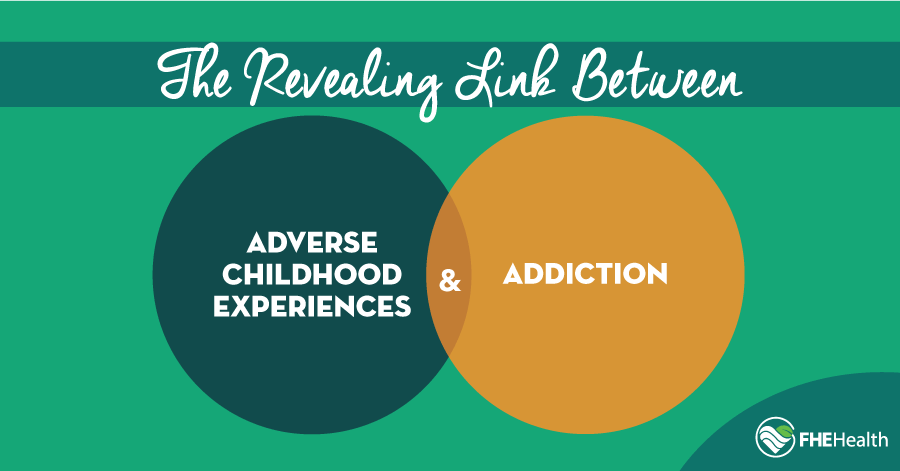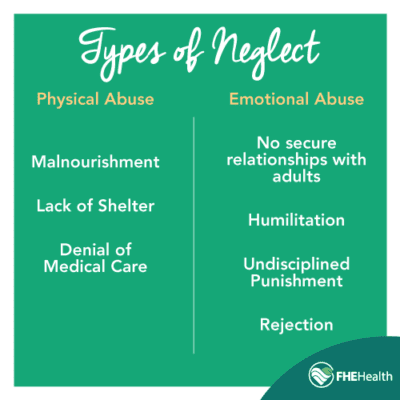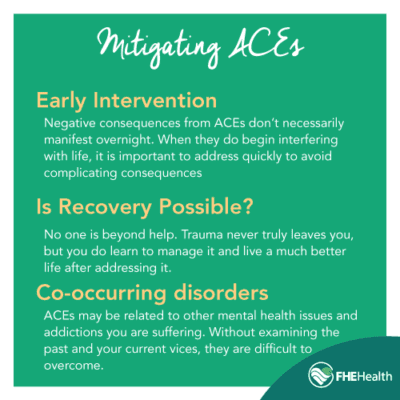
The psychological community has long understood a strong link between what happens to us as children and the way mental health disorders manifest later in life. Is this true of addiction as well?
Addiction is a physical and mental disease, and while it can happen to anyone, some people seem to be more prone to drug abuse. What we seek to answer is this: Could traumatic experiences in childhood be a strong predictor for bad habits with drugs and alcohol in teenage and adult years? If so, what can we do to address the issue most effectively?
What Are Adverse Childhood Experiences?
Children’s advocacy group Joining Forces for Children claims that Adverse Childhood Experiences, or ACEs, have a strong link with health issues later in life. The group defines Adverse Childhood Experiences as any form of trauma during childhood, including abuse, neglect and household dysfunction. This trauma has the potential to cause something Joining Forces calls toxic stress, a type of stress that is most likely to cause problems in a child’s development and may provide insight into the link between ACEs and addiction later in life.
Examples of Adverse Childhood Experiences
ACEs are broken down into three main categories: abuse, neglect and household dysfunction. Here are some examples of each.
Abuse
With the category of abuse, there are three subcategories:
- Physical abuse
- Emotional abuse
- Sexual abuse
Most often, adults perpetrate abuse, but not always. Examples of physical abuse would be parents with harsh discipline methods involving striking children when they misbehave or because they can’t control their temper.
Other children can also commit abusive ACEs. If a child is bullied relentlessly, their psyche can be damaged for the rest of their life. This can occur physically, emotionally or sexually.
Neglect
There are two main types of neglect ACEs:
- Physical abuse
- Emotional abuse
 Physical neglect typically means depriving children of the things they need in life: food, water and so on. Emotional neglect may have some physical manifestations.
Physical neglect typically means depriving children of the things they need in life: food, water and so on. Emotional neglect may have some physical manifestations.
Children need to be loved by their parents, and ways of showing this include hugs and other physical affection. If children aren’t getting this at home, they may seek it out somewhere else or lose development because of it.
Neglect also affects a person’s education. Children who grow up with parents and other family members reading to them and working with them on school assignments are better prepared for the education system than those who don’t. As we’ve learned, truancy and low education are often factors in substance abuse and addiction.
Household Dysfunction
There are five types of ACEs associated with household dysfunction:
- Family member(s) with mental illness
- Incarcerated family member(s)
- Domestic abuse
- Substance abuse issues at home
- Divorce
Some of these are more common than others, and many children grow up with exposure to more than one of these factors. There are strong associations between household dysfunction and mental illness, addiction and incarceration. These factors are also frequently linked to domestic violence and broken homes.
For example, a child may have an alcoholic family member. Alcoholism can cause temper and impulse control issues, and alcoholics may live their lives in and out of jail. This impacts the well-being of the family, especially when there are children in the household.
Imagine that this particular case also involves domestic abuse, another common consequence of addiction. In this case, the child may also be the victim of physical, emotional or sexual abuse, and neglect can play a role as well.
This is just one example, but it paints a clear picture of the fact that, often, ACEs don’t happen in only one of the 10 subcategories. These traumatic events and circumstances can overlap and blend, making the study of their effects much more complicated.
The Impact of ACEs
It’s logical then that traumatic events can impact childhood development, which affects adulthood. But what’s the degree of impact and how does it negatively affect public health, both in the short and long runs?
The Impact During Childhood
A multitude of studies have been done on children exposed to ACEs, and the majority have suggested that the impact starts to appear sooner rather than later.
One study of some 700 children measured learning disabilities and health problems experienced during childhood and cross-referenced with the rate of exposure to one or more ACEs. The results found that the children who had more ACEs during their formative years of development were significantly more likely to have attention deficit issues like ADD and ADHD, other learning disabilities and health issues like obesity later on in their childhood.
Adverse Childhood Experiences and Addiction
Do ACEs experienced during childhood have any explanatory power or adverse conditions like addiction and mental health disorders as an adult? According to several key studies, there is a strong link.
A study of nearly 15,000 subjects showed that those who reported at least one adverse childhood event during their developmental years were much more likely to struggle with mental health issues, substance use disorders (SUDs) or both as adults. These consequences of ACEs didn’t just occur in brief periods.
Most of the health issues discussed in the study were something that subjects dealt with over a long period of time. These results show the massive impact of childhood trauma on the rest of a person’s life.
How Can We Mitigate the Effects of ACEs?
One of the important things about understanding the impact of ACEs, whether it’s adverse childhood experiences and ADHD in children or adverse childhood experiences and addiction in adults, is that these issues are easier to address when professionals know what to look for. Here are some ways to mitigate the impact of ACEs:
Early Intervention Is Key
 If you’re struggling with addiction, understanding the risks of your disease on your family is key. Here is a testimonial from a mother who documented her experiences in rehab and how they affected her family life.
If you’re struggling with addiction, understanding the risks of your disease on your family is key. Here is a testimonial from a mother who documented her experiences in rehab and how they affected her family life.
Children who experience neglect due to addiction, domestic violence and other factors rarely get the help they need as a child, and they miss the best chance they can get to avoid the long-term impacts of their childhood trauma.
Early intervention applies in adulthood as well. People with ACE exposure during childhood won’t develop these conditions overnight.
There will be warning signs, and the presence of an experienced therapist or counselor to help someone identify the manifestation of these consequences means that treatment can start before problems become fully developed. Treatment may involve strategies such as talk therapy, the development of positive coping methods, and evidence-based treatments like cognitive behavioral therapy or pharmacotherapy.
Is Recovery Still Possible Later in Life?
But what if the impact of adverse childhood experience is fully realized? What if a person is struggling with an addiction that can clearly be traced back to some trauma they experienced as a child?
In the eyes of the addiction and mental health treatment communities, no one is beyond help. With access to the right treatment, anyone can recover from addiction or mental health disorders; it just may take more comprehensive options such as a period of inpatient substance or mental health rehab and lifelong group meetings.
Treating Co-Occurring Disorders
A common outcome of ACEs is the combination of two or more coexisting conditions, which are naturally more challenging to treat. Certain substance issues can be caused by specific mental health disorders and vice versa, making the situation even more risky for the patient. These cases have to be handled with extreme care, and the potential for long-term residential treatment and lifelong care is even higher.
The Bottom Line: Adverse Childhood Experiences
As we’ve discussed, ACEs are extremely common and can impact lives as soon as a few years after the traumatic events. There’s no “one size fits all” treatment for ACEs, but with experienced professional help, addiction and mental health disorders later in life can be addressed and targeted.
If you or a loved one is dealing with addiction or mental health problems, either as a result of childhood trauma or other reasons, FHE Health can help. Contact us today to learn your treatment options with us.






